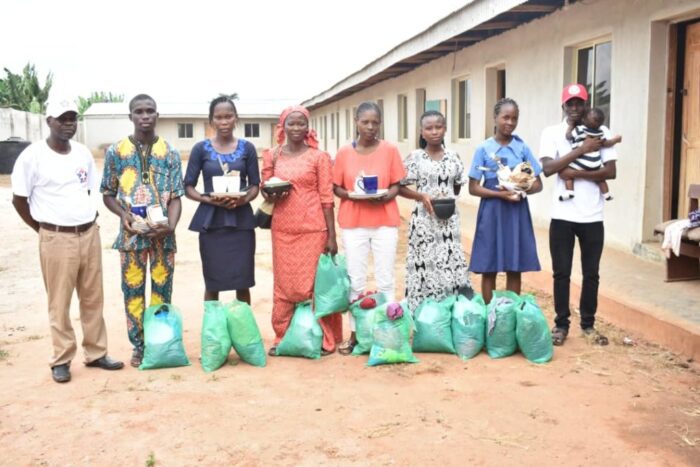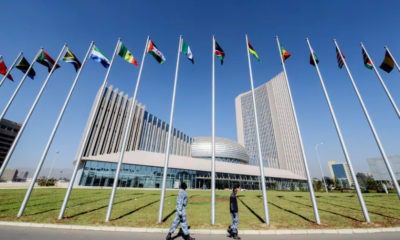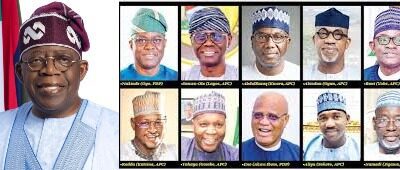National Issues
Palliatives: Similar Stories From Kenya To Nigeria -By Isaac Asabor
Against the foregoing backdrop, it is not out of place to say that there is a heightened suspicion among not few Nigerians over the Federal Government’s approval of N5 billion for each state and the Federal Capital Territory (FCT) to enable them procure food items for distribution to the poor in their respective states.

There is no denying the fact that not a few Nigerians are worried that the palliatives meant to be given to a category of Nigerians as a result of the removal of the fuel subsidy would not be transparently and prudently distributed.
The palpable and pervasive worry cannot in anyway be said to be misplaced as similar palliatives allegedly given to the so called “The poorest of the poor”, particularly during the ravaging days of Covid-19 pandemic were doused in the quagmire of suspicion. The suspicion was so thick that it could have literarily be sliced with a knife that the leadership of the Nigeria Governors’ Forum (NGF) was compelled to deny the allegations that State governments hoarded the palliatives, which were looted in the wake of the #EndSARS protests. The Governors’ defensively said the looted food items in warehouses across the country were reserved for a second wave of the COVID-19 pandemic as well as the vulnerable.
In a similar vein, it would be recalled that the screening of Mr. Festus Keyamo during the time he was a minister-designate was shrouded in rowdy session as he was accused of disrespecting the National Assembly members over the implementation of the Special Public Works Programme (SPW Programme) in the 774,000 local government areas of the country, and of being corrupt when he was summoned to give an explanation on the implementation of the programme.
The rowdy session was trigged by the Senate Minority Whip, Senator Darlington Nwokocha (LP Abia Central) who raised issues against Keyamo when he appeared for screening as a ministerial nominee. Nwokocha, in his question during the screening of Keyamo demanded to know what happened to the sum of N52 billion allocated for the execution of the Special Public Works (SPW) programme, which was coordinated by the National Directorate of Employment (NDE) under the supervision of the Keyamo, who was then the Minister of State for Labour and Employment.
As gathered, the programme was targeted at employing 1,000 unskilled youths in each of the 774 local government areas for a duration of three months across the country, while the beneficiaries were expected to engage in public service works and receive a monthly stipend of N20, 000 during the period.
Still in a similar vein, the former minister of the Federal Ministry of Humanitarian Affairs, Disaster Management and Social Development, Sadiya Umar Farouq in August 2020 dismissed a report that the sum of N15 billion was spent on the Home Grown School Feeding Programme during the COVID -19 lockdown. While giving an update on the Minister’s presentation at the Presidential Task Force Press Briefing, the then Special Adviser on Strategic Communications, Halima Oyelade in the ministry, explained that the Minister gave a comprehensive response to speculations and fake news circulating around sums purportedly spent daily on the provision of take-home rations under the modified Home Grown School Feeding Programme.
According to her, the total sum of N523,273,800 was spent on ‘Take Home Ration’ given to 124,589 households impacted between May 14, 2020 and July 6, 2020, in FCT, Ogun and Lagos States respectively between May 14, 2020 and July 6, 2020.
At this juncture, it is expedient to recall that suspicion surrounding the giving of palliatives to vulnerable people is not peculiar to Nigeria as in July 2021 there were agitations in Kenya for the probing of COVID-19 cash transfer program.
As gathered, the bone of contention was that the Kenyan government’s cash transfer program failed to protect most of the vulnerable people who disproportionately suffered the economic fallout from the COVID-19 pandemic. Against the foregoing backdrop, a Report released by Human Rights Watch alleged that political leaders funneled some funds to friends, relatives, and supporters; enrolled participants received less money than promised; and the implementation of the program was shrouded in secrecy.
The foregoing situation in Kenya is not different from that of Nigeria as similar cases in this part of the world has been criticized through a number of questions as to how transparent it were in the transfers of cash and gifting of materials to vulnerable Nigerians in times of need such as during the COVID-19, and recently the proposed palliatives to so-called “The Poorest of the poor” in the country.
Against the foregoing backdrop, it is not out of place to say that there is a heightened suspicion among not few Nigerians over the Federal Government’s approval of N5 billion for each state and the Federal Capital Territory (FCT) to enable them procure food items for distribution to the poor in their respective states.
Some of the innumerable questions been asked are “Who are the poor of the poorest that would be deemed to be qualified to receive the supposed palliatives?”, “Does the government have a comprehensive data that captures their addresses and telephone numbers”, and “Will the government not divert the palliatives to their relatives and party members?” The foregoing questions are been asked by not a few Nigerians as they do not trust some of our political leaders given the thievery dispositions and antecedent they are known for. Against this analytical view, it is expedient to conclude that from Kenya to Nigeria that similar stories over palliatives are been told.


















